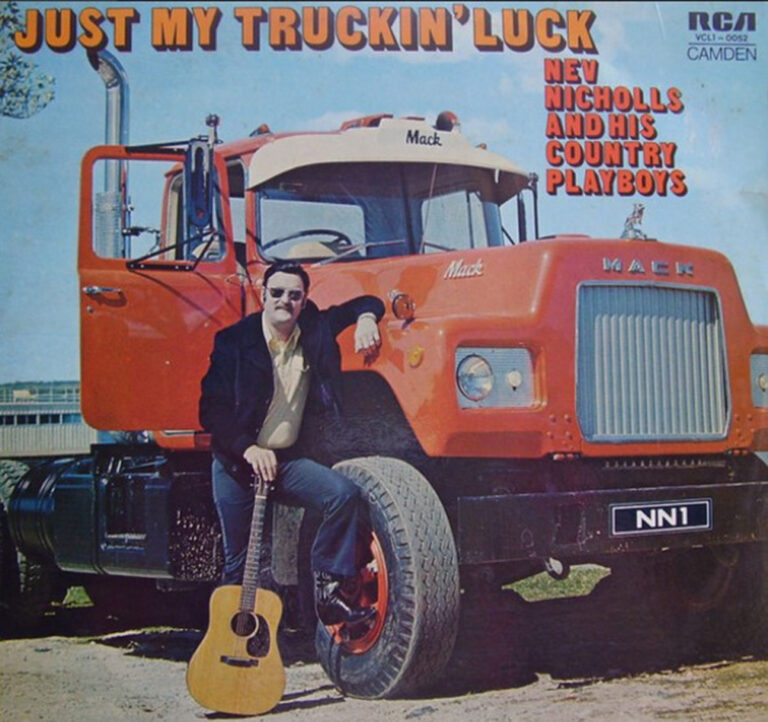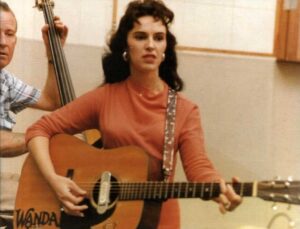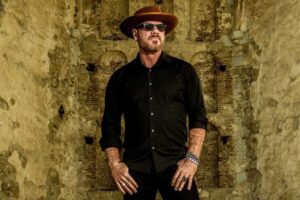Big rigs, and of course, big rig drivers, are hardly unique to the U.S. Large numbers of Canadian and Mexican trucking firms employ drivers, and these three North American countries are likely the occupation’s geographic area for drivers. There are plenty of big rigs in Europe as well.
But when it comes to matching the cultural popularity of drivers on a scale that the U.S. reached in the 1970s, perhaps Australia comes the closest.
And, where truck drivers travel, trucking music follows. Considering trucking music is best connected with country music in the U.S., it’s only natural that fans in a place where other forms of country music are popular have their fair share of trucking music.
Although the U.S. truck driving census of 3.3 million drivers dwarves that of Australia (245,000), the continent has a long connection to country music — both that popular in the U.S. and its native form. So, if you’re looking for foreign trucking songs, Australia is a good place to turn. And when you’re looking Down Under, there’s one name to search — Nev Nicholls.
Nev Nicholls was born on a farm in the New South Wales area of Southeast Australia. After his father died when Nicholls was still a boy, he worked both the family farm and nearby farms to help the family make ends meet.
In the meantime, when he was 11, Nicholls discovered the guitar and taught himself to play and write songs. His farming jobs kept his musical ambitions on hold for several years, but when time allowed, Nicholls appeared on the local radio station performing both his original songs and covers of popular music.
In 1952, Nicholls left the farm and headed for Sydney on Australia’s Pacific Coast. There, he made some custom recordings that caught the ear of executives at Regal Zonophone Records. Soon he was recording original material for the record company. He became popular on Australia’s “Amateur Hour” and Tim McNamara’s “Talent Quest.”
Nicholls permanently moved to Sydney to pursue his career, but he found opportunities in short supply. He made more money as an insurance salesman than a musical performer.
In 1954, Nicholls signed with another Australian recording company, EMI. His popularity grew, and three years later, he went on tour with several other country recording artists. A year after his first tour, he set out on his second throughout New South Wales and Queensland. But his success didn’t hold. Unfortunately, fans soured on Australian country music through most of the 1960s.
But in 1968, U.S. country music became popular on the continent, and for the next 10 years, Nicholls teamed up with numerous acts to play at a honkytonk, the Texas Tavern. Others appearing at the venue included Buddy Emmons, Roger Miller’s steel guitar player and the U.S.’s own Charley Pride.
During this period, Nicholls formed the band that would bring him his most successful years, The Country Playboys.
By 1974, trucking songs were all the rage in the U.S. Nicholls, always on the lookout for a niche, had a hunch that tales of truck drivers would attract listeners in Australia as well. His first album of such songs, “Keep on Trucking,” was certified gold.
While Nicholls had a boatload of U.S. trucking songs he could have picked from to cover on his albums, he opted for original songs focused on Australia. Between 1974-1981, Nicholls recorded seven albums containing truck driving songs, and his new niche was well received. With albums titled “Just My Truckin’ Luck,” “Truckin’ Around,” “Supertrucker” and “Blazing Diesels,” it was clear Nicholls had cornered the market on Australian trucking music and had made his mark on his country’s music scene.
In 1977, Nicholls was inducted into the Tamworth Hands of Fame, which is on par with Hollywood’s Walk of Fame.
Nicholls’ trucking songs were most often based on tales and issues facing the Australian trucking industry and Australian drivers. But his music took on the unique sound of American country music, primarily the Bakersfield Sound, made popular by Buck Owens and Merle Haggard.
With driving rhythms led by electric guitars, instrumental introductions to Nicholls’ music signal the listener a trucking song is on the way — the rhythm of the highway beats at a regular pace behind the lyrics. On occasion, however, Nicholls strayed from the ways of American country music and inserted a brass section into his tunes. The brass, out of place to American listeners, helped set a tone for some of Nicholls’ songs, particularly those with upbeat and positive lyrics.
Geography has always played an important role in country music, and it’s evident in trucking songs. After all, Hank Snow set the stage with “I’ve Been Everywhere,” and most American trucking songs also have a sense of place to enhance the story behind the lyrics.
Nicholls recognized the importance of geography, and his lyrics include many references to the highways, cities and landmarks of Australia. Whether it’s Western Australia, the Northern Territories or the informal “Outback,” Nicholls sang of drivers covering terrain across most of the Australian continent. To an American listener, however, Nicholls’ geographic references can be confusing.
In his 1975 hit single “Truck Me Dead,” Nicholls sings of the last moments of Harry, a truck driver from Townsville, an oceanside city in Australia’s “Sunshine State” of Queensland.
Unfortunately for Harry, the character was on his deathbed in southern Australia, and he knew he’d never find his way northward before he died. He laments being laid to rest in what he considers to be the “cold” area of the continent (even though southern Australia is considered to have a mild Mediterranean climate). He begs his “mates” to “truck me dead to Townsville,” where the climate is warmer and more suited to Harry’s tastes.
To an American listener, it’s hard to conceive of the north being cooler than the south, but that’s the way it is in the southern hemisphere.
After the long discography of trucking songs Nicholls turned out in the 1970s, he spent most of the remainder of his career performing on a roadshow heard on 90 radio stations throughout Australia. In the late ’90s, Massive Records re-released many of Nicholls’ trucking songs on albums such as “Aussie Truckin’” and “Interstate Truckin’.” Those releases brought renewed attention to Nicholls’ body of work.
In 2002, he retired from the music business and was inducted into the Australian Country Music Broadcaster’s Hall of Fame. He died in 2012 at the age of 93.
Until next time, when those old trucking songs get stale, spread your wings and see what performers in other countries have to offer. You’ll find a lot you’re already familiar with, but there’s plenty that will be new to the ear.
Since retiring from a career as an outdoor recreation professional from the State of Arkansas, Kris Rutherford has worked as a freelance writer and, with his wife, owns and publishes a small Northeast Texas newspaper, The Roxton Progress. Kris has worked as a ghostwriter and editor and has authored seven books of his own. He became interested in the trucking industry as a child in the 1970s when his family traveled the interstates twice a year between their home in Maine and their native Texas. He has been a classic country music enthusiast since the age of nine when he developed a special interest in trucking songs.







